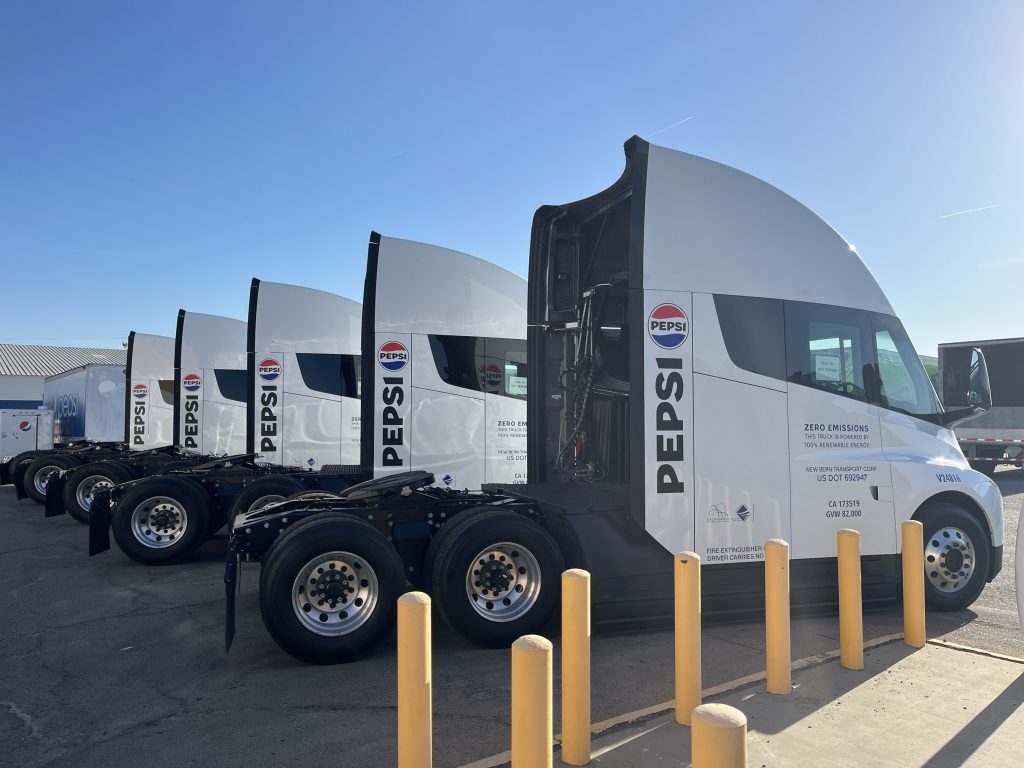PepsiCo's Stunning Fleet Upgrade: 50 New Tesla Semi Trucks Delivered

In a commendable move towards sustainable logistics, PepsiCo has begun incorporating the revolutionary Tesla Semi trucks into its fleet. Recently, PepsiCo shared an image showing off their fresh new Tesla Semi units, which will be operating out of their PepsiCo Beverages North America (PBNA) Fresno, California location. These sleek, white Tesla Semis will be delivering beloved beverages across the state, marking a significant milestone in the company’s efforts to green up its transportation methods.
A Fleet Transformation in Progress
PepsiCo revealed that they expect to receive 50 units of the Tesla Semi over the next few months. The initial buzz about this substantial delivery came from Tesla Semi program Senior Manager Dan Priestley during the ACT Expo clean transportation conference in Las Vegas, Nevada. As Priestley mentioned, the delivery process for PepsiCo’s new Tesla Semi units has already commenced, with the company now poised to leap forward in responsible and efficient freight transport.
The Powerhouse Setup
Accompanying the new Tesla Semi units are eight 750-kW Megachargers installed at the PBNA Fresno location, ensuring the speedy recharging of these energy-efficient trucks. To bolster the charging infrastructure, two Megapack batteries have also been set up at the facility. This setup underscores the serious commitment PepsiCo is making towards a zero-emissions future.

Sustainability at the Core
John Dean, President for PepsiCo Beverages North America, West Division, emphasized that fleet electrification is crucial to the company's sustainability goals. “Our fleet electrification is an important part of our pep+ (PepsiCo Positive) strategy and illustrates how sustainability is a core business strategy at PepsiCo—good for the planet, good for our business, and good for the communities we serve,” Dean stated. This move not only aligns with corporate sustainability but also brings practical benefits and operational efficiency, reiterating that eco-friendly can also mean business-friendly.
Busting the Myths
PepsiCo’s Fresno facility, a sprawling 170,000-square-foot manufacturing hub, is responsible for distributing consumer favorites like Pepsi, Gatorade, and RockStar. The introduction of Tesla Semis to this high-demand operation is crucial in busting the myth that these trucks are only suitable for light loads, such as transporting chips. Dan Priestley cleared up the misconception at the ACT Expo by emphasizing that PepsiCo's trucks are frequently used to haul much heavier beverage loads.
Future Prospects
The incorporation of Tesla Semi trucks symbolizes more than just a nod to innovation; it showcases a blueprint for large-scale sustainability in fleet operations. As PepsiCo continues to roll out these electric giants, the broader industry will be watching closely, taking notes on this successful integration of cutting-edge technology into daily logistics. With sustainability being a major component of modern business strategy, PepsiCo is clearly leading by example, leveraging Tesla’s ingenuity to create greener pathways for tomorrow.